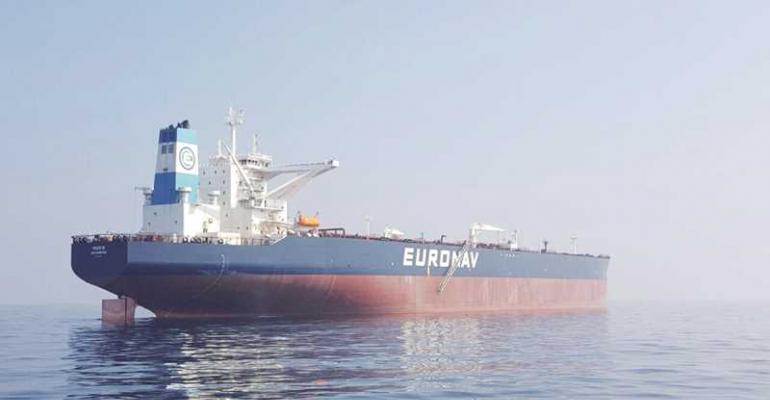Euronav revealed on Thursday that it has bought 420,000 tonnes of compliant fuel – both 0.5% and 0.1% this year. The Very Low Sulphur Fuel Oil (VLSFO) was purchased at an average price of $447 per tonne compared to $400 per for 3.5% high sulphur fuel oil (HFO) in the same period.
The company’s ceo Hugo de Stoop said: “This volume can provide a substantial coverage of our fuel requirements during the initial period of the regulation.
“Leveraging our balance sheet strength and operational capability to purchase and secure supply of tested compliant product that should provide a natural hedge for Euronav against any lack of fuel oil availability, poor quality compliant fuel or unwanted price spikes and help establish strong, direct B2B relationships for future fuel sourcing.”
The company believes it has secured supply of quality, tested low sulphur fuels to last a six to nine month transition period at the start of the IMO 2020 regulation.
Euronav is using the 441,585 dwt ULCC Oceania to store the compliant fuel the company has purchased and is repositioning the vessel to the vicinity of Singapore later this month.
The shipowner has secured a $100m revolving credit line with a club of backs to fund its fuel purchases.
Euronav is also changing its position on scrubbers, at least potentially for the older vessels in its fleet. Under previous ceo Paddy Rodgers the company had taken vocal stance against the installation of exhaust gas cleaning units.
Read more: Euronav highlights scrubber concerns
The company said it was studying installing scrubbers on non-eco type VLCCs, and does not think that it is now too late to make such an investment. “Euronav believes that it can still fully capture the potential benefits of an investment in scrubbers after the start of the regulation,” it said.
“This should even provide Euronav with a “second mover advantage” in learning the flaws of the first round of installations and take a decision based on facts without having to speculate.”
Copyright © 2024. All rights reserved. Seatrade, a trading name of Informa Markets (UK) Limited.
Add Seatrade Maritime News to your Google News feed.  |

